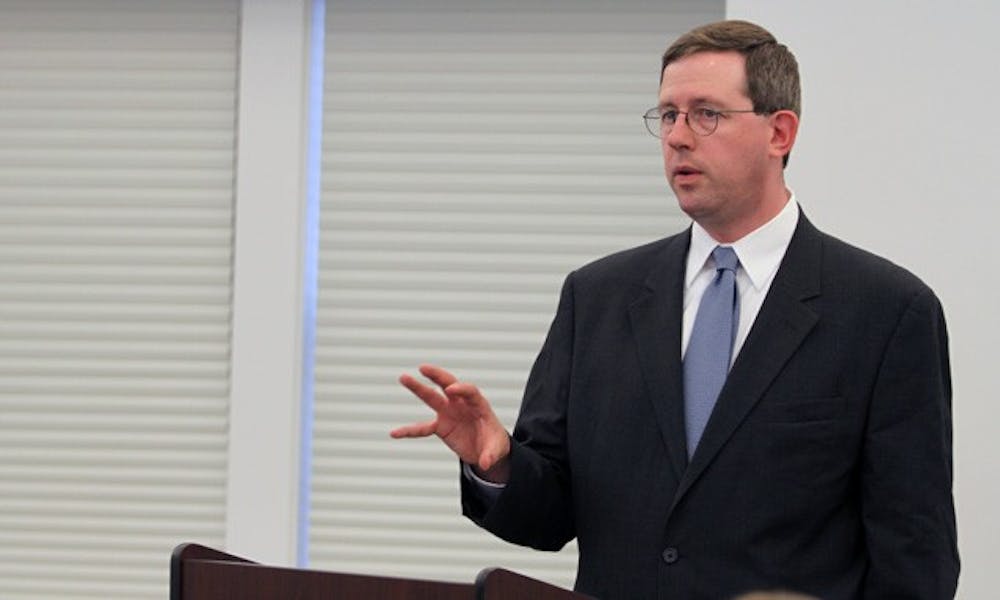The Department of Homeland Security is working to assure the safety of the U.S. at home—while affecting relations abroad.
Faculty, students and former foreign service officers filled the John Hope Franklin Center for Interdisciplinary and International Studies Wednesday for a lecture by Christopher Sands, senior fellow at The Hudson Institute, a nonpartisan think tank in Washington, D.C. that focuses on matters of global security, prosperity and freedom. Sands, who will also guest lecture for a class in the Franklin Center Thursday, discussed the developing role that the DHS plays in international affairs.
“These people who thought that the DHS would eventually become more like customs, those who hoped DHS would have a warm face like the State Department, will eventually find that the DHS is a defense department and needs to be treated like one in order to maintain good relations with it,” Sands said.
The DHS was founded by the George W. Bush Administration in 2002 to “ensure a homeland that is safe, secure, and resilient against terrorism and other hazards,” according to its mission statement. The department oversees border control, customs, immigration and other key aspects of domestic security through component agencies such as the Coast Guard, the Transportation Safety Administration, the Secret Service and the Federal Emergency Management Agency.
“Most people don’t know that the men saving the President in the movies are now in the DHS,” Sands said about the Secret Service.
Sands noted that although its name implies a focus within our borders, the DHS works with foreign governments to better serve American domestic security interests.
“It is important to recognize that the DHS is part of our relationship with countries around the world,” he said. “DHS has an additional level of management in it... that tries to set up a consistent approach to countries around the world and deal with challenges that face [the DHS agencies].”
Sands noted, for example, that DHS has employees doing direct customs work for the U.S. in many foreign countries. After 9/11, the DHS stationed officers abroad as part of its Container Service Initiative, a project to supervise the inspection of shipping containers before they were sent to the U.S. The initiative was first implemented in Canada to monitor goods trucked south into the U.S.
Sands, a specialist in U.S.-Canada relations, took time to focus on the DHS’ role in border control and trade regulation between the U.S. and Canada.
Stephen Kelly, visiting professor of the practice of public policy and Canadian studies, invited Sands to speak.
“I’ve known Dr. Sands and his work for 15 years or so—he’s been a very prominent expert on the U.S.-Canada relationship,” Kelly said. “He tackles issues that are very esoteric, but he has a way of explaining them that makes them accessible to a wider audience.”
Some of the regulatory problems facing U.S.-Canada borders are kidnapping and drug smuggling, Sands said. DHS has made great advances in monitoring the immigration of children between the two countries with more stringent documentation requirements.
On immigration, Sands discussed two-sided nature of illegal immigration in North America and said that some people who enter legally do not leave when their visas expire.
“One of the challenges that we have at the border is not just entry control but exit control,” Sands said. “Canada found there were roughly 40,000 individuals there in 2008 who were illegally remaining in the country.”
David Litt, executive director of the Center for Stabilization and Economic Reconstruction and a retired U.S. ambassador, reflected on the quality of Sands’ presentation.
“He used the example of Canada as a great demonstration of the [Department’s] attempt to work in a foreign policy environment,” Litt noted.
Get The Chronicle straight to your inbox
Signup for our weekly newsletter. Cancel at any time.

